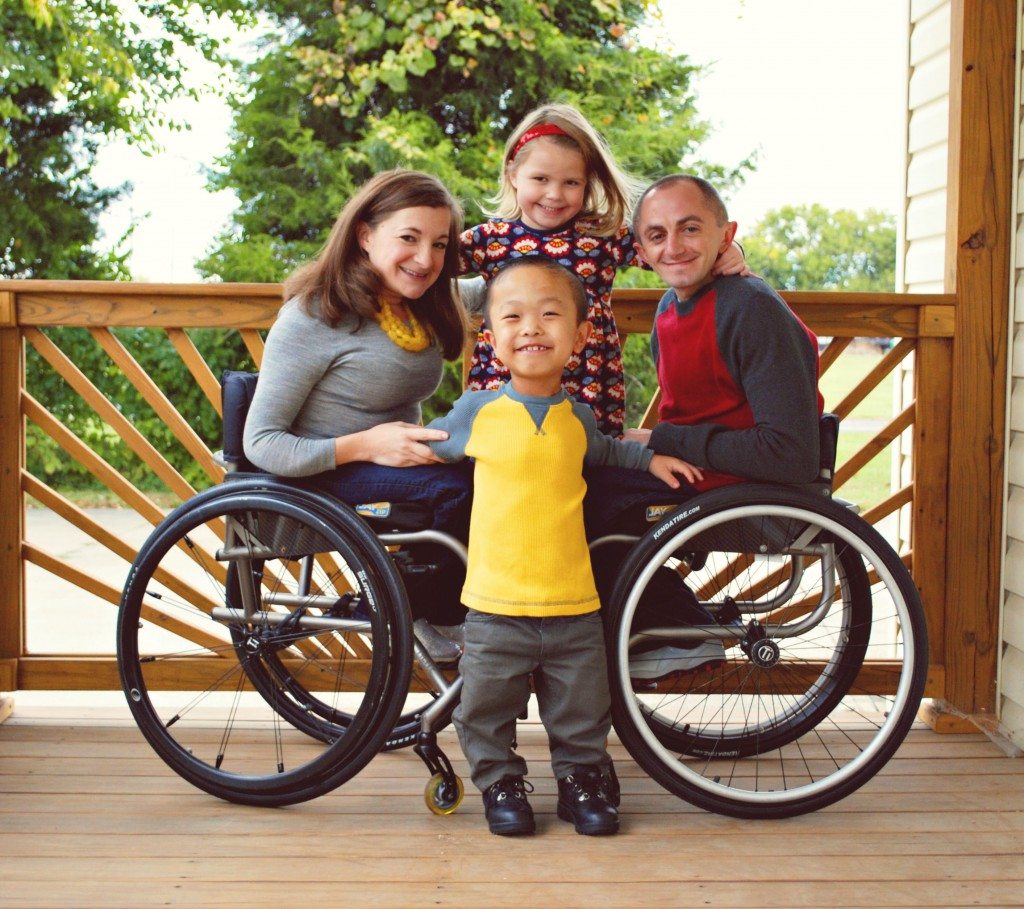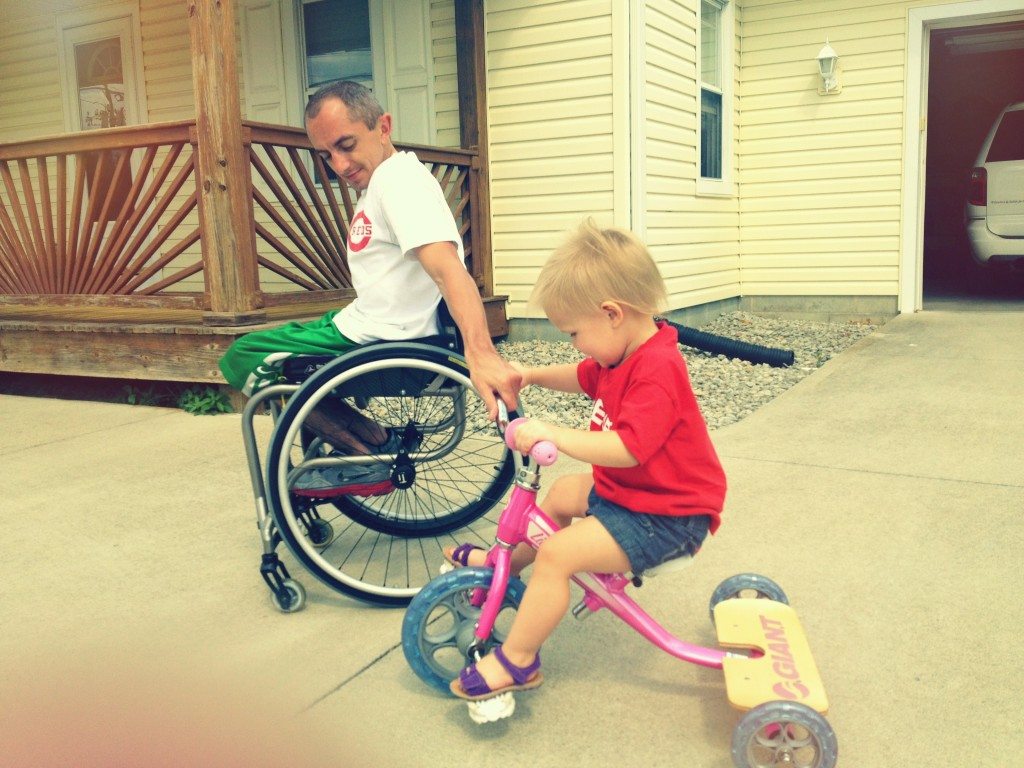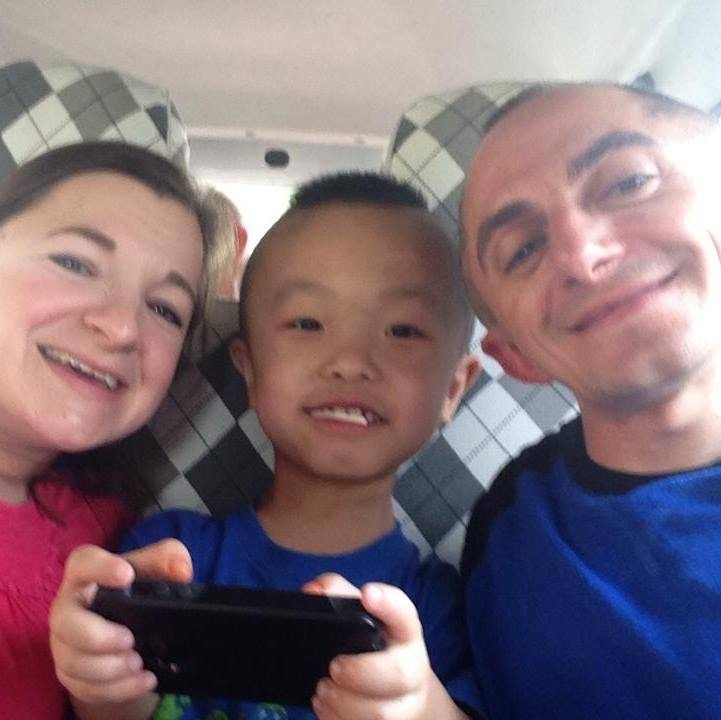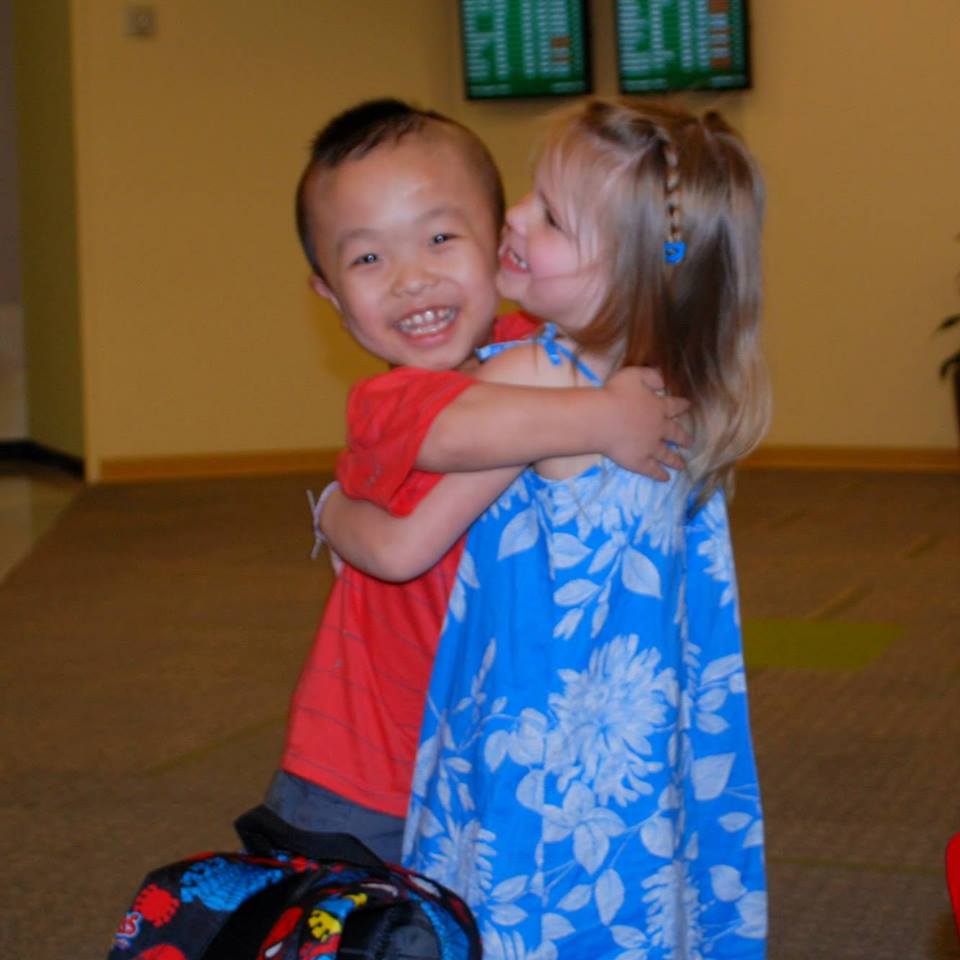As people grow up, get married, and launch into a life together, there’s a funny series of conversations that often encircles these rights of passage. Even as a teenager, I remember the chatter.
“How many kids do you think you’ll have?”
And after weddings, I’ve heard, “When do you think you’ll starting trying?”
Right after a birth, “Do you think you’ll have more?”
I’ve almost always observed these questions tossed to and answered by others. I don’t necessarily wish to be the recipient. I’ve known for as long as I can remember that there lies a complexity in these questions-and their answers-that doesn’t fit with the short, certain replies people seem to expect. Most people haven’t asked me or my husband these questions because it lingered into that awkward realm of the unknown. We are two people with a genetic disability called Osteogenesis Imperfecta (OI). OI is a type of dwarfism that causes brittle bones (mostly in childhood in our cases). We use wheelchairs for mobility and drive with adapted vehicles.
Individually – and especially together – most people just didn’t expect we’d have children. A few years ago, I might have felt angry at that assumption. How could the same people who parenthood as the best part of their lives, assume that I would have no interest?My husband and I have mobilized creativity, determination, and hard work to achieve so many of our goals. Why would parenthood be the one path we accepted as beyond our abilities? Today, I realize a beautiful path of possibilities emerges when people absolutely no expectations for you. I’m thankful for the gift to write our own story, think outside the box and set our own expectations and vision for our family.
In 2010, we welcomed our biological daughter Hannah into the world.
I enjoyed a healthy and happy pregnancy punctuated by a planned c-section due to my short stature. We embarked on pregnancy with the knowledge that there was a 75% chance that Hannah would inherit one or both of our OI genes. We were fully confident in our ability to carry over our knowledge about living with OI to parenting a child with OI. We did fear the 25% chance within those odds that our baby would inherit both OI genes. This is called double dominance and doesn’t result in survival. At around 16 weeks, we learned that Hannah was not double dominant. Shortly after birth, we were also confident she did not have OI. We are a proud mixed-ability household that views disability as just a part of our family’s culture.
We knew we wanted more children and my husband and I had both grown up with thoughts of adoption. Perhaps it was related to our own questions about whether biological parenthood was possible or the lack of examples of other parents like us. Yet again, I’m appreciative that we’ve never been bound by expectations assigned to those without disabilities. When you don’t know what a family like ours should look like or should do, you make up your own rules!
We connected to other parents with disabilities who had adopted and learned about programs that had welcomed this aspect of diversity. We asked about travel. While many people are wary of squatty potties, adding a wheelchair to the terrain in other countries is another dimension of challenging! We learned that it was difficult but possible. With what I imagine is the same pounding heart and lump in the throat shared by other adoptive parents, we took the plunge and locked our son’s file. Eli is 7-years-old and has a different type of dwarfism from our OI. He has achondroplasia. I was initially fearful to add adopting out of age order to our long list of relatively unique circumstances, but I’m so thankful we trusted that little voice saying, “You can do this!”
He needed us and we now know, we needed him.
We brought Eli home just two and a half short months ago! This is our first picture:
And here here’s Eli meeting his sister:
Throughout the entirety of the process, China was an exceptionally welcoming country to our family. Our documentation clarified that our disability doesn’t negate our overall excellent general health. In fact, our disability makes us even more equipped to parent our son. From the start, we’ve celebrated his membership to local support groups and made connections to medical experts familiar with his dwarfism. Our years of advocacy experience combined with the knowledge of living as people with disabilities continue to be an asset to the adjustment process.
Adoption is far from easy for any family. “When will you start your home study?” will probably never be one of the first questions asked at a wedding shower. It’s not the typical path and that’s OK. For those that have shared this journey, we know the unending beauty in building a family through adoption. We aren’t the typical family. Our differences have opened our hearts and our worlds to experiences we never dreamed possible. I’m thankful we took the leaps no one expected and wrote our own story.






























This family is so inspirational to me! They needed each other, I love it. Thank you for sharing!
I love this post so much. It’s clear that love writes a beautiful story, even if — maybe perhaps MOSTLY WHEN – it is unexpected. Thank you for not letting others’ expectations define you. I’m sure your children will be ferociously brave no matter what they face given their foundation in a family like yours.
One of my favorite posts!
Beautiful story and so, so inspirational! Thank you, Kara, for sharing with us.
Love this beautiful story and family. May we all be inspired to shed some expectations of our own.
Lucky, lucky children!
I’ve known Kara since she was in the 6th grade. She has grown into a beautiful and intelligent young woman. Congratulations on your family!